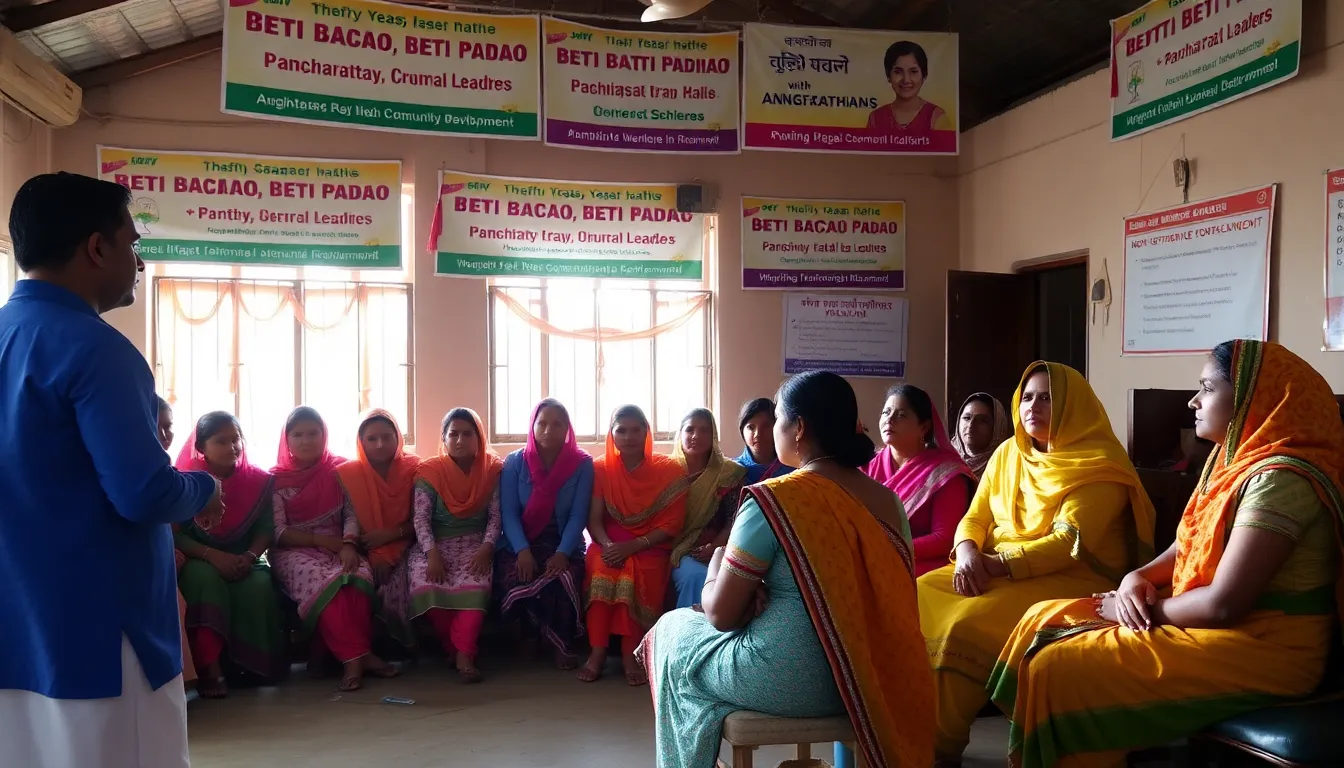In a significant move towards empowering women, a training session was held for the daughters of village council leaders (Sarpanch and Up-Sarpanch) in Sanand, Ahmedabad district. This initiative aimed to educate young women about the Panchayati Raj system and various government welfare schemes designed for their benefit.
The training was organised under the joint efforts of the ‘Sankalp – Hub for Empowerment of Women’ programme and the Integrated Child Development Services (ICDS) of Sanand. The session focused on providing essential information and guidance about the Panchayati Raj system and the roles of the Panchayat, specifically tailored for the daughters of female leaders in the village councils.
Gender specialist Mr Jitesh Solanki and financial literacy expert Ms Hemal Barot led the training under the slogan ‘Beti Bachao, Beti Padhao’ (Save the Girl Child, Educate the Girl Child). They explained the importance of the Panchayati Raj system, which allows elected village leaders to make crucial decisions for the development of their communities.
During the training, the participants learned about various welfare schemes and safety projects implemented by the Women and Child Development Department. This knowledge is vital for them to actively participate in local governance and contribute to their villages’ progress.
The event saw the presence of Ms Jagritibehan, a child development project officer, along with many other attendees, including Anganwadi workers and numerous daughters of Panchayat leaders. The enthusiasm among the participants highlighted the eagerness to learn and take part in community development.
This training session is part of a broader effort to empower women in rural areas of Gujarat. The Panchayati Raj system has a significant role in India’s governance and community development. It allows elected representatives to implement government schemes at the grassroots level, ensuring that the voices of rural citizens are heard.
The Panchayat leaders’ daughters are encouraged to understand their roles within this system. By educating them, the initiative aims to foster a new generation of informed and engaged leaders. This can lead to better decision-making and a more active participation of women in local governance.
In Gujarat, the Panchayati Raj system was established to decentralise power and promote local self-governance. The structure consists of three tiers: the Gram Panchayat (village level), the Taluka Panchayat (block level), and the Zilla Panchayat (district level). Each level has a specific role in implementing development programmes and ensuring the welfare of the community.
The training sessions like the one held in Sanand are essential in promoting the involvement of women in these processes. With better awareness and understanding, the daughters of Panchayat leaders can bring positive changes to their villages. They can help address local issues, advocate for women’s rights, and promote education and health within their communities.
Overall, this initiative not only empowers the daughters of Sarpanch and Up-Sarpanch but also strengthens the Panchayati Raj system by ensuring that more women are prepared to take on leadership roles in their communities. As they learn about governance, their contributions can lead to a more equitable and progressive society in Gujarat and beyond.


Leave a Reply